Some creakiness is typical after rest, but longer-lasting stiffness may be other issues
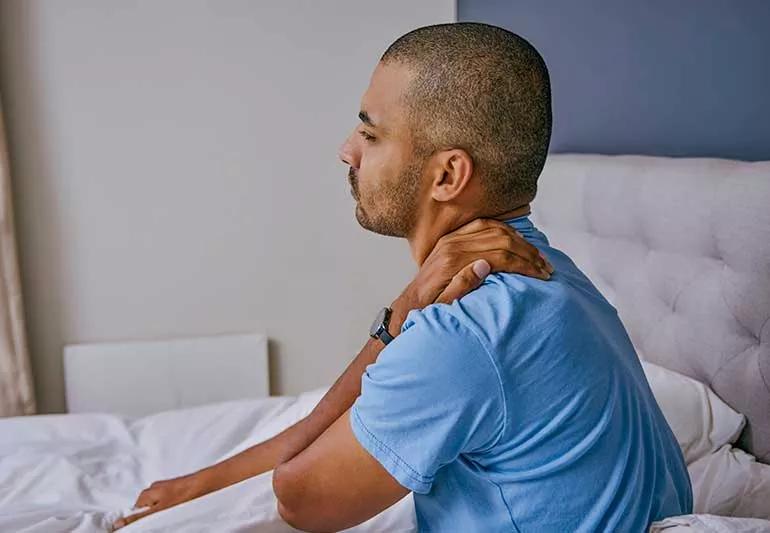
Rusty old hinges tend to get locked in place if they sit unused for an extended period of time. The same concept applies to your joints.
Advertisement
Cleveland Clinic is a non-profit academic medical center. Advertising on our site helps support our mission. We do not endorse non-Cleveland Clinic products or services. Policy
That’s why your first steps in the morning after hours in bed might seem a bit awkward. The same sensation hits after binge-watching TV shows from the couch or sitting in the car during a long road trip.
So, why do your joints stiffen up like the Tin Man after he’s caught in a downpour? And is there a point when that feeling is a sign of a bigger concern? Rheumatologist Ahmed Elghawy, DO, has your answers.
Joints need lubrication to operate smoothly. That’s why you oil or grease a squeaky door hinge.
Your joints come with a natural lubricant known as synovial fluid. This viscous fluid fills the meeting space between bones. The slippery substance allows for smooth movement within your knees, elbows and other joints.
The more you move around, the more this fluid circulates in your joints to keep everything gliding, says Dr. Elghawy.
But when you rest, that lubricant sits and thickens.
The next time you move around … well, let’s just say that those joints don’t immediately operate quite as efficiently as they did earlier. That resulting “stiff” feeling remains until the fluid thins and starts recirculating.
This phenomenon is sometimes called “morning gel” in reference to how synovial fluid stiffens like gelatin when allowed to rest.
Advertisement
Experiencing some joint stiffness after inactivity is natural at any age. But as you get older, the feeling may become more common and linger a little longer given decreases in your synovial fluid.
Still, that creakiness should disappear relatively quickly after you start moving around.
But if that joint stiffness is prolonged, it may signal:
Determining the cause of longer-lasting stiffness is important — particularly when it comes to autoimmune conditions, which require more specialized care and treatment.
“When joint stiffness lasts for an hour or more, we often suspect an autoimmune disorder,” says Dr. Elghawy. “When we’re talking about a younger person with long-lasting stiffness, that’s another signal that it’s potentially an autoimmune disorder that needs attention.”
If your morning gel is severe and there’s a question about whether it’s rooted in an autoimmune issue, healthcare providers may run blood tests or remove and examine joint fluid to check for inflammatory cells.
The best advice here fits just about every health issue. “It’s so important to adopt a healthy lifestyle,” advises Dr. Elghawy. “You can ease many issues with your joints if you watch your weight, exercise regularly, eat a healthy diet, reduce stress and get proper rest.”
Motion is lotion, too, so staying active will help keep your joints lubricated and working efficiently. Physical therapy and targeted exercises can sometimes be used to reduce joint pain and stiffness.
Over-the-counter pain relievers can also sometimes help ease symptoms connected to osteoarthritis. For autoimmune disorders, prescription medications can be used to calm down inflammation.
“But lifestyle changes often make the biggest difference,” says Dr. Elghawy. “Start small and slowly build up to create good habits.”
Advertisement
Learn more about our editorial process.
Advertisement
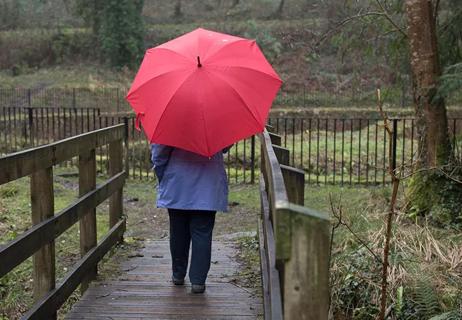
Barometric pressure can play a role in joint pain, but that doesn’t mean you have to live with it
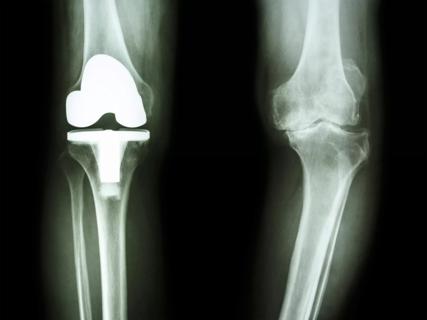
What you need to know about prosthetic joint infection after surgery
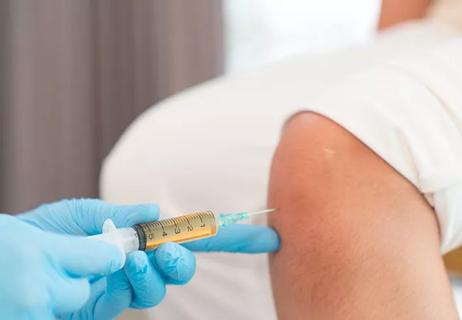
Several options to help get you moving
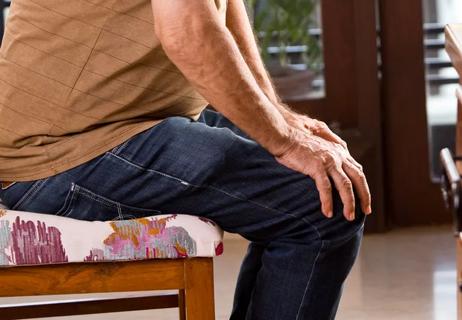
Even one less pound helps preserve hips and knees
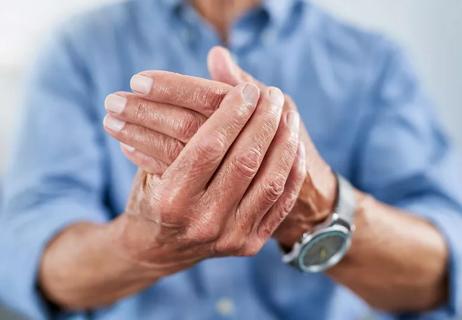
Getting the facts straight about osteoarthritis

Building a support system, adapting activities you love and following a healthy diet can all help manage symptoms and changes

These creams that you apply to your skin can actually help reduce localized pain, swelling and inflammation

While an ultrasound shows your muscles and tendons, an MRI also shows your joint cartilage, bones and heart chambers

Wearing a scarf, adjusting your outdoor activities and following your asthma treatment plan can help limit breathing problems

Your diet in the weeks, days and hours ahead of your race can power you to the finish line

When someone guilt trips you, they’re using emotionally manipulative behavior to try to get you to act a certain way